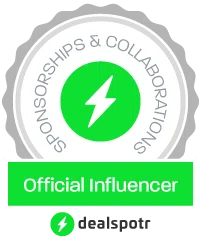This post is brought to you by Catherine Lavinia in order to help your eye health!
Many people believe that sunglasses can be just a stylish accessory. Nevertheless, there are some good reasons why they are called “protective”. Their main purpose is to protect your eyes from too bright sunlight, and most importantly – protect from the destructive action of the “invisible enemy” ultraviolet rays. How to distinguish real protective sunglasses from fake ones? Let’s try to find out.
Let’s just define: dark glasses and sunglasses – it’s not the same thing. Shaded glasses protect us from the sun light, while protective UV sunglasses have transparent chemical compound on the surface of their lens for protection against ultraviolet.
Dark glasses do not prevent from the sunlight – they just make you feel more comfortable in bright sunlight. Cheap or poor-quality sunglasses that do not have a protective coating may be a time bomb. The pupil covered with dark glasses is “deceived” by the absence of direct sunlight and begins to dilate. Moreover, if the glasses are not equipped with protective coating, all kinds of UV radiation may freely affect the cornea, lens and retina. Prolonged UV exposure can lead to the development of cataracts and even more serious eye diseases.
Pay special attention to the following details:
Sunglasses with UV protection are sold in special stores and optical shops. Here any buyer may see the certificate clearly indicating the level of protection from ultraviolet rays. Thus, the best sunglasses provide protection in the range up to 400 nm. What about the price issue? The price range is determined by the quality of lenses, frames, brand, store pricing, etc. Nevertheless, a good pair of protective UV sunglasses can’t be cheaper than $100. Democratic brands with decent quality lenses and frames may cost even more (Ray Ban, D & G, Carrera, Barton Perreira eyewear, etc).
Branded protective UV sunglasses are sold with a protected covering and a passport. Their ear pieces shall include: model number, color, size and country of origin. The passport attached to the glasses indicates the percentage of UVA and UVB radiation.
Glass lenses provide guaranteed protection from ultraviolet radiation. Try to avoid red, pink, orange, yellow, blue colors. Orange and red shades are too aggressive for the eyes. Yellow is too bright for a sunny day, while blue in large quantities generally violates your color perception. The safest lenses are of gray, green and brown shades. They are less likely to distort the colors and best to absorb the radiation.
Sunglasses have long ceased to be exclusively a summer accessory – on the contrary, ophthalmologists advise to wear them in any weather. In addition to their strictly practical value, sunglasses allow to hide the small imperfections of your face and just show you keep up with modern times. Well, we hope that now you can easily choose the right protective UV sunglasses! And if you wish to save your money, buy discount eyeglasses at Eyeweardock.com.











